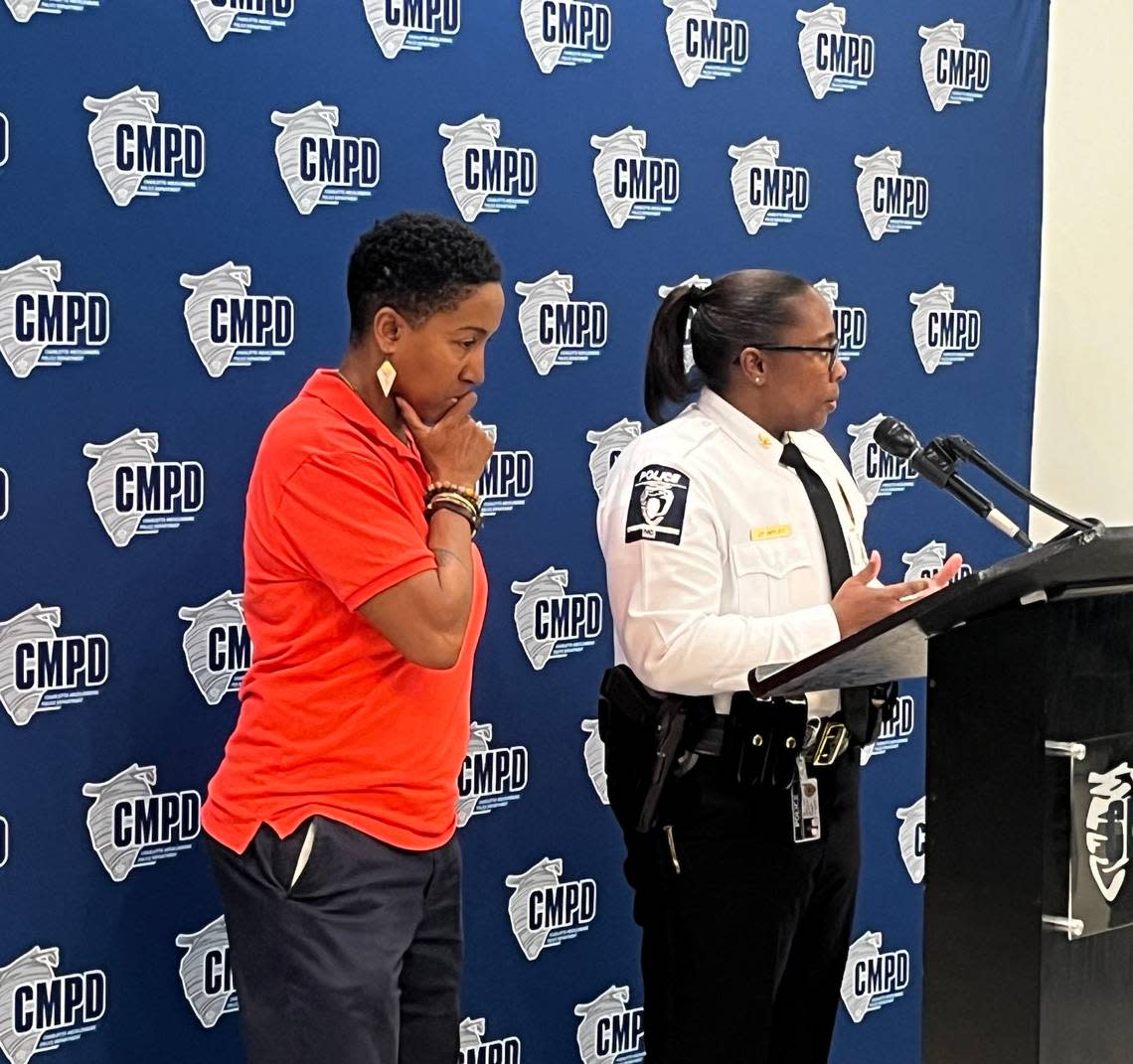Charlotte community group wants police to stop arresting for marijuana. CMPD says no.

An advisory group recommended that the Charlotte-Mecklenburg Police Department stop arresting people for smoking marijuana, but the department said no.
After a viral, controversial arrest last year, community leaders have been meeting with police at the request of the chief and looking for policies to change. The group finished its work Tuesday, police announced at a news conference.
Police should not “stop to investigate or arrest for the smell or smoking by (individuals) of what appears to be marijuana only,” one recommendation said.
But the law is the law, CMPD said.
“Marijuana continues to be illegal under both North Carolina and federal law at this time,” a response from the department said, adding that officers still have discretion to enforce that law.
Police are adopting some recommendations from the group, which has been meeting privately for months.
Those meetings were barred to the public, and participants agreed not to speak to reporters, The Charlotte Observer previously reported.
What’s changing?
“Is anything major going to come out of this? No,” said Robert Dawkins, a longtime Charlotte activist who was part of the conversations. Dawkins is the political director for Action NC, a statewide group that focuses on equity.
He went in with that expectation, he said. Still, it was a good time to share ideas, and he was grateful that Police Chief Johnny Jennings brought the group in, he said.
“If you already had something in mind that you could reference for this, to put in front of the police chief, then you had the opportunity to do that,” he said.
For Dawkins, that was more support for CARES, a civilian response team that helps people who are facing problems tied to homelessness, mental health, poverty or substance abuse.
The group recommended that the City Council increase CARES’ budget, expand it and move it out from under the police department.
“CMPD agrees with these recommendations for the team to expand and also be relocated under another city department to enhance credibility,” the department wrote in response. “CMPD is currently working with the City Manager’s Office on next steps for this program.”
Also of note:
The group recommended hiring an auditor to look into the implicit bias training that officers go through. CMPD is implementing new training in 2025, it said in response.
They asked CMPD to create a standalone de-escalation policy. The department said it would amend its response-to-resistance policy to include one.
George Floyd’s cousin, Paris Stevens, is working with CMPD to share testimonials with recruits about how “their position is impactful.”
Deputy Chief Jacquelyn Bryley said Tuesday that there is a “continuing discussion” about officers’ duty to intervene.
The meetings stemmed from the arrest of Christina Pierre, a woman who had just clocked out of work at a nearby Bojangles when police said they smelled marijuana. Police Officer Vincent Pistone hit her 17 times. Jennings said that was 14 strikes too many, and Pistone was suspended for 40 hours.
“It’s not necessarily just intervening when a physical interaction occurs, but how you prevent a physical interaction from occurring in the first place,” said Tonya Jameson, who chairs the Citizens Review Board and who chaired the advisory group’s meetings.
Police, Charlotte-Mecklenburg Community Relations, the Citizens Review Board, the Charlotte-Mecklenburg NAACP, Action NC, the Latin American Coalition, clergy members and the George Floyd Global Memorial took part in the meetings.

